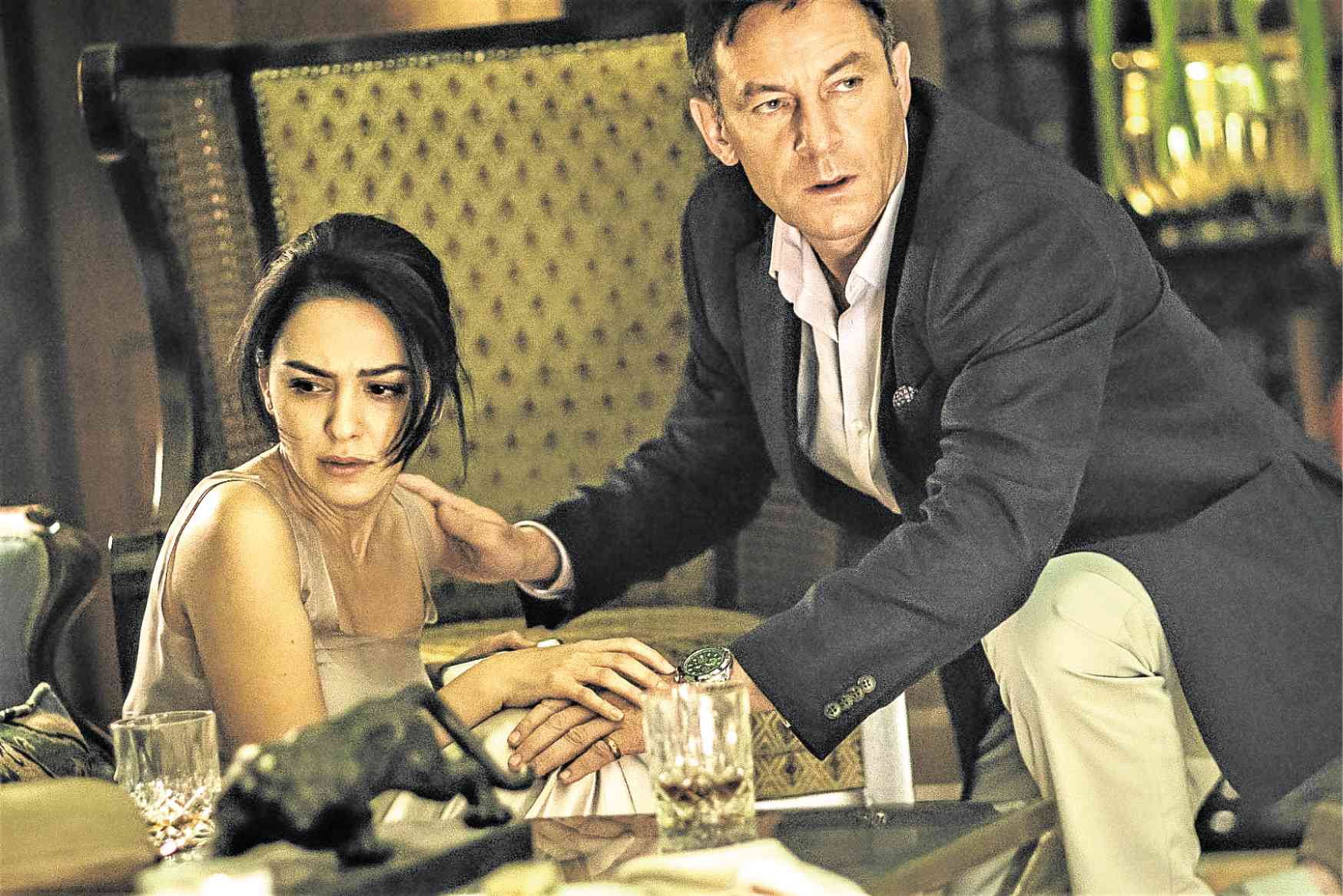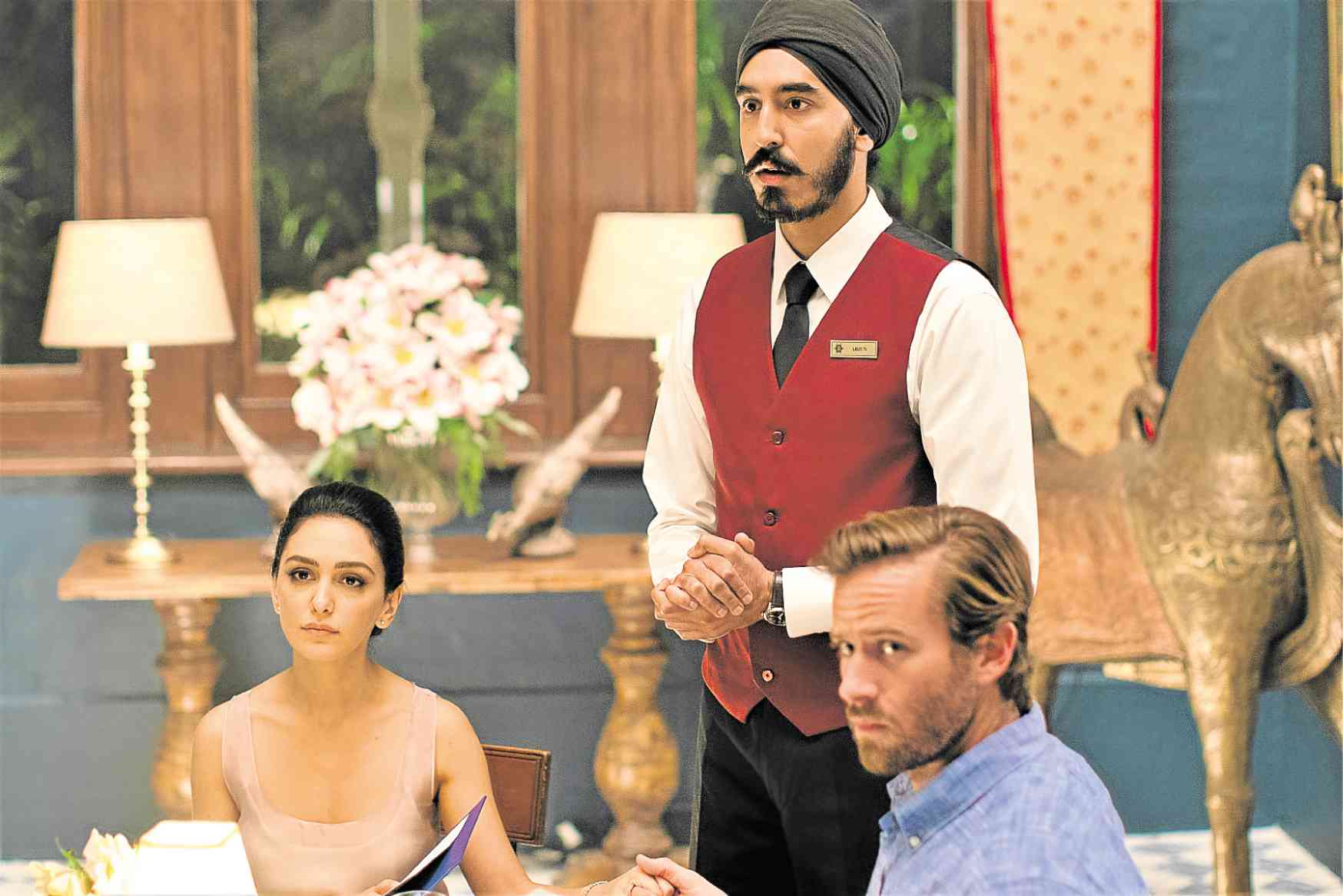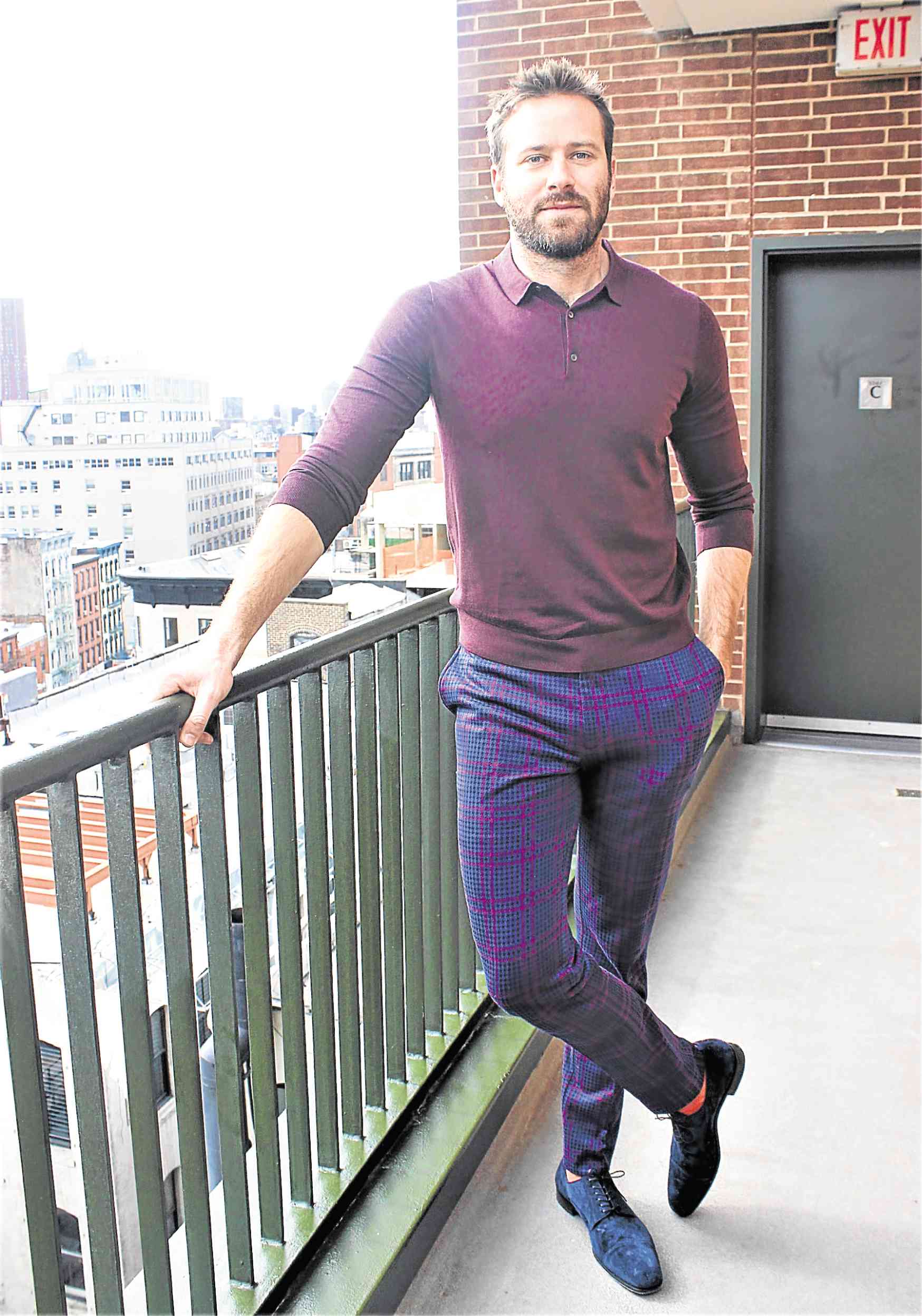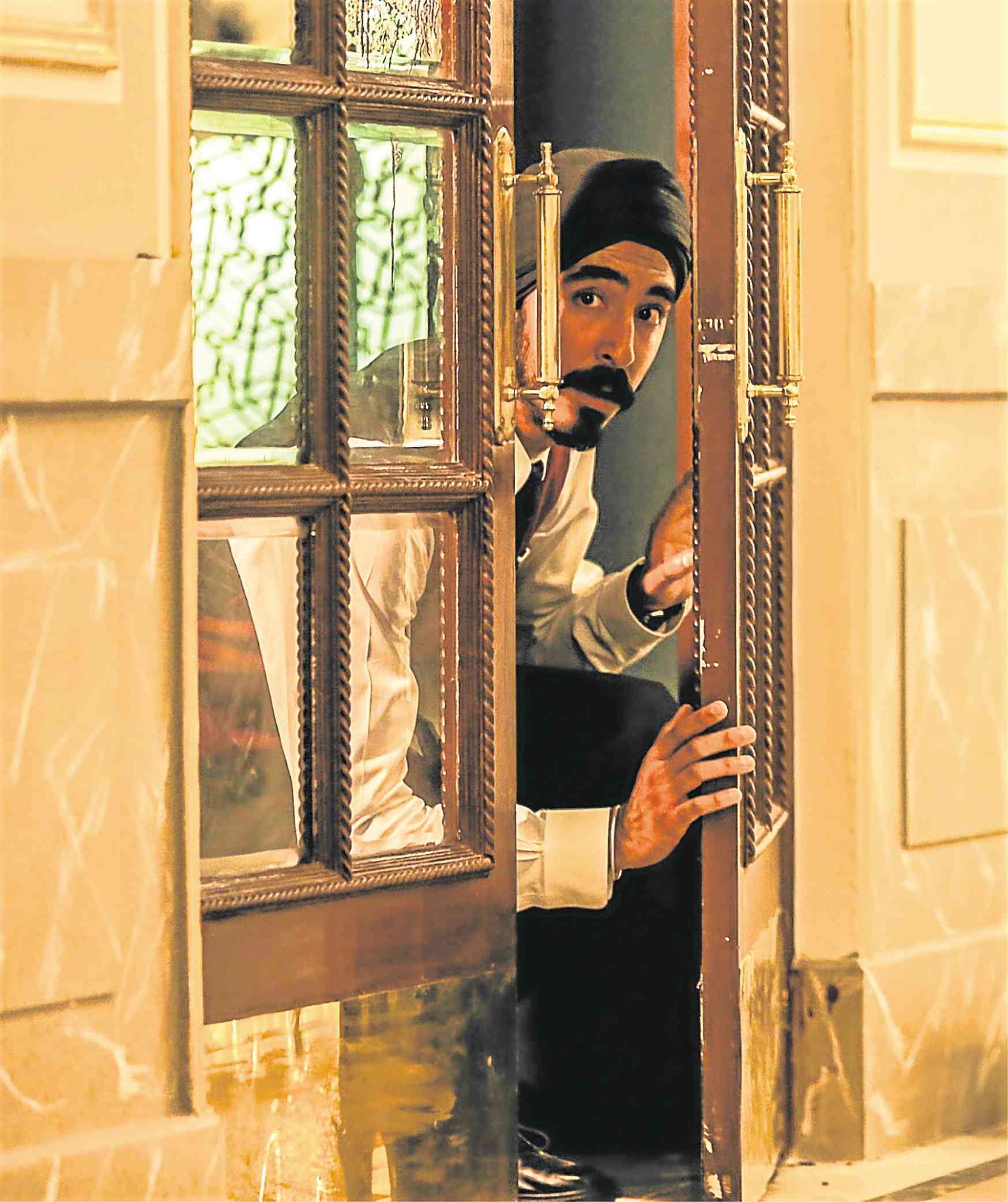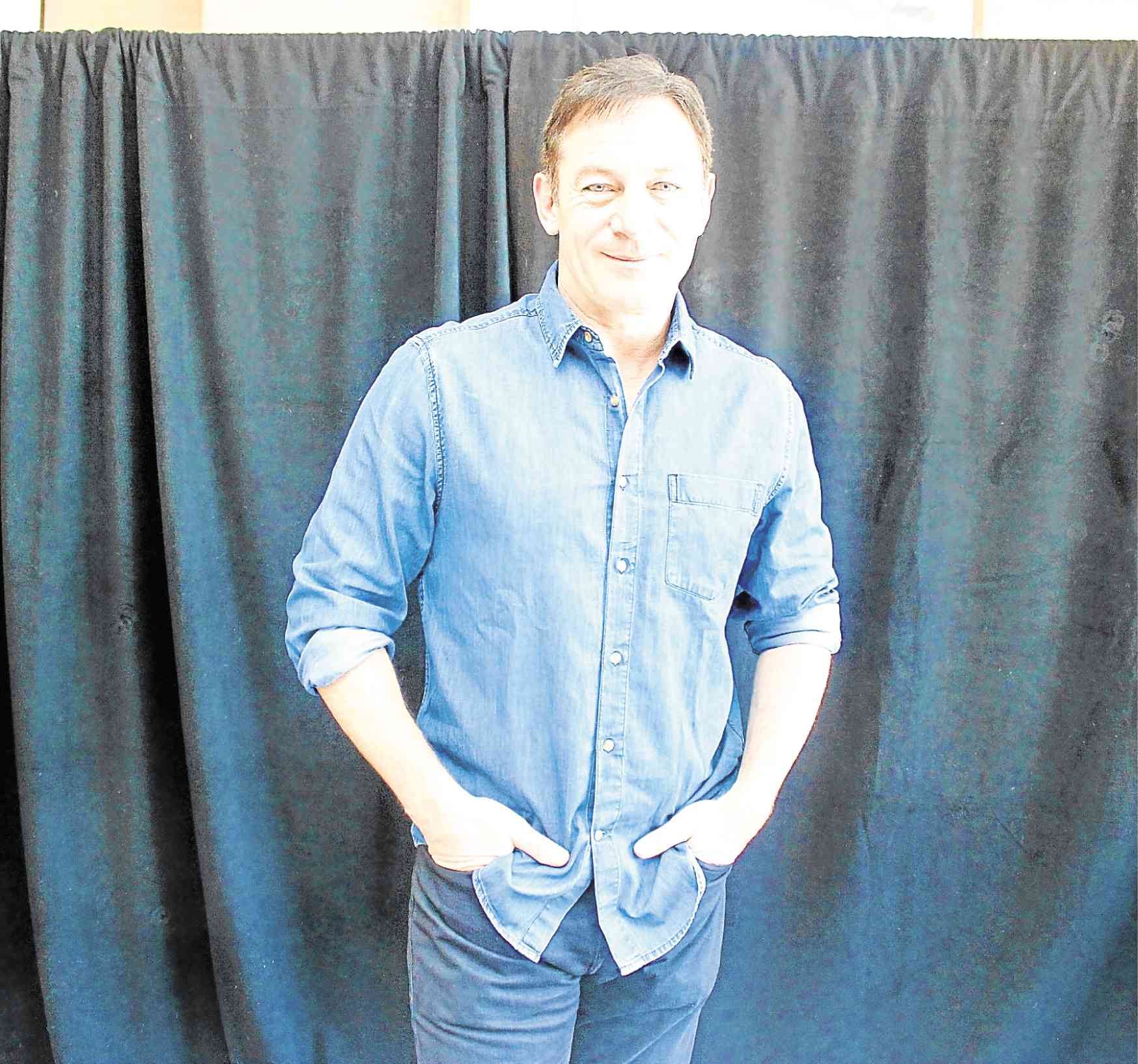Actors talk about sad timeliness of ‘Hotel Mumbai’ amid Christchurch terrorist attack
LOS ANGELES—A few hours after we watched “Hotel Mumbai,” a film based on the 2008 terrorist attacks in India, the horrific mass shootings at two mosques in Christchurch, New Zealand, unfolded.
With sadness, we thought about the increasing frequency of these attacks and how innocent lives are snuffed out in these senseless killings.
“Hotel Mumbai,” prompted by the 2009 documentary “Surviving Mumbai”—about the terrorists’ siege of the Taj Mahal Palace Hotel and other locations—stresses the heroic acts by the hotel staff, including renowned chef Hemant Oberoi, waiters and busboys, who risked their lives to protect the guests.
The film, directed by Anthony Maras (he also wrote the script with John Collee), stars Dev Patel, Armie Hammer, Jason Isaacs, Nazanin Boniadi and Anupam Kher.
When we interviewed Dev, Armie and Jason a few days later in New York, the talk was somber. Anupam plays Oberoi, but most of the characters in the movie are composites of survivors and victims in the carnage at the famous hotel that lasted for two nights and three days.
The terrorists, heavily armed with automatic weapons and grenades, took some guests and employees hostage, killed others and set parts of the hotel on fire.
The 10 men, reportedly sent by Lashkar-e-Taiba, a terrorist group based in Pakistan, killed more than 170 people around Mumbai. “Hotel Mumbai” is sadly timely in the wake of the Christchurch massacres.
Armie Hammer
Armie, who plays a hotel guest with his wife (Nazanin), newborn baby and nanny in tow, said, “It’s a sad reality that we do have to be on guard. This stupid sh*t happens as we just saw in New Zealand. You would think that we as humans have evolved enough and have enough of an understanding to realize that we should just stop f**king shooting each other.
“It’s just so dumb like these extremist ideologies, these xenophobic ideas that we put between us that people can exaggerate to the point where they feel like they need to do something like this.
“One of the reasons why I like this film is that it focuses on the humanity. You see the human toll that’s taken on both sides of this, even in the example of the gunmen in our film. They’re not just nameless, faceless robots who just perpetuate violent acts. They are humans who are affected by what’s going on. They’re misled by ideologies.”
The star of the acclaimed “Call Me by Your Name” added, “It’s just an unfortunate reality of the world we live in. The thing that I put more blame on than any one specific person is a lack of education, experience, wisdom … ”
On what kind of discussions “Hotel Mumbai” should inspire among people after they have seen it, Armie answered, “The conversation to have after seeing this film is OK, this is obviously a global issue. What can we do to stop it? Who do we need to talk to? Who do we need to understand better because these people felt misunderstood, underrepresented and underheard?”
“You have to start somewhere in a much smaller way before you get to the point of spending years planning an attack,” Armie pointed out. “The desperation has to build over time. No one gets frustrated in one day. In the film ‘Falling Down,’ for example, that guy spent years getting frustrated, and it was growing. Maybe if there was one person who walked up to him one day and said, ‘You seem upset. What’s going on? What can I do to help you?’ Who knows what kind of crisis you might avert?
“There is a level of sympathy and understanding that we lack as humans for anyone who might be different than us. That’s a dangerous thing because you can push people into a corner. Humans are animals. When you corner animals, they react. Figuring out why people do these things is more important than trying to figure out how to stop these things. You’re treating the symptom, not the disease.”
Dev Patel
“I don’t think it was in the name of their religion,” claimed Dev Patel, who portrays a waiter, about the armed gunmen who simultaneously attacked various places in Mumbai. “This is, especially now, a sensitive issue with what’s going in New Zealand. This is not an anti-Muslim film. This is antireligious fundamentalism. That is the evil in this movie.
“And the good is humanity, and it comes in different shapes, sizes and beliefs and some nonbelievers also. But at the end of the day, what we’re talking about is people being similar. It doesn’t matter if you are from a Sikh slum in Mumbai, who is a waiter in this hotel, or you are a Russian billionaire—when the terrorists come, everyone is the same.”
The “Slumdog Millionaire” star, asked about the New Zealand attacks by one man that left 50 people dead, replied, “That was heartbreaking. I saw her (prime minister Jacinda Ardern) address the public, and I forwarded the video to the whole cast. The prime minister there spoke so eloquently and beautifully. She is someone I admire. Her emphasis on compassion was just beautiful.
“These strays of society think they are acting for the majority, but they are not at all. And movies like this, as brutal as they can be, let us in a little bit. They make us understand it a little better.
“Is it a good time to tell a story like this?” Dev asked aloud. “Possibly there are more reasons to show a film like this, because it’s happening all over the world. This trend of mass shooting is unsettling and heartbreaking.
“So, when people watch this film, I hope they come away from it seeing how much people can come together in terms of crisis.”
Jason Isaacs
“It’s a film that was inspired by the documentary about the courageous survivors and how, amid this absolute horror, humanity won, in a way,” Jason said about “Hotel Mumbai.”
“This appalling incident in Christchurch makes it more important than ever to send out a message that there’s more that unites us than divides us,” stressed Jason, who is Vasili, a Russian oligarch, in the film. “This is a time in the world where we’re being told to hate ‘the other,’ whether it’s someone who has a different religion, a different skin color or a different belief system.
“In the end, this story, as harrowing as it is to watch, is inspiring. I’ve seen it with lots of audiences now, in different countries. The reason I wanted to be a part of it, and what I’ve seen audiences take from it, is a reaffirmation that we are capable of seeing beyond anything that separates us.
“So, instead of thinking that it’s not the right time to see it, it’s [actually] the message that we need to be sending … in the light of how people capitalize on those events to turn us against each other.”
The actor, who played Lucius Malfoy in the “Harry Potter” movies, asserted, “I do think these instances are never going to go away. Hopefully, they’ll be less frequent. But what’s really important is that we don’t overreact and listen to the racists when that happens. Like when 9-11 happened, there were all kinds of emergency legislation all over the world that took away humans’ civil rights that had been long fought and won. Torture was suddenly OK.
“One of the things you can take from this film is that while those instances will always go on, at the heart of it are people who are able to see beyond those divisions.
“So, I’ve watched the heartbreaking tragedy of that. There are stories now emerging of people who did remarkably selfless and heroic things, or just small acts of kindness and generosity. That’s what we need to hold onto as human beings, that level of tolerance and love. That’s the genesis of this film. It’s not about documenting horror. It’s about documenting the most positive things that can come of out of these instances that are never going away.”
E-mail rvnepales_5585@yahoo.com. Follow him at https://twitter.com/nepalesruben.
